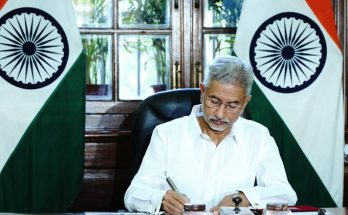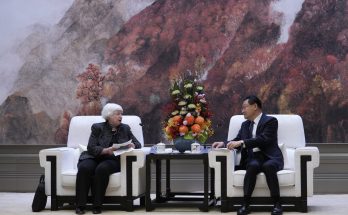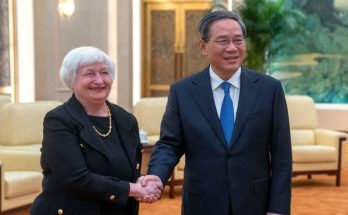
The Wuhan spirit of widening convergences and managing differences between India and China has found a reaffirmation in the second meeting of the P2P mechanism co-chaired by the foreign ministers of the two countries.
The wide-ranging discussions between India’s External Affairs Minister and Chinese Foreign Minister Wang Yi in Beijing on August 12 have set the stage for the visit of Chinese President Xi Jinping to India for the second summit with Prime Minister Narendra Modi. Taking a pragmatic and long-range view of bilateral relations, the two foreign ministers agreed on the critical importance of India-China relations as “a factor of stability in this uncertain global environment.”
“There is mutual agreement that as two of the largest and fastest growing developing countries, representing almost one third of the global population, stable and balanced development of our relations will not only be beneficial for our two peoples, but also a factor of stability in this uncertain global environment,” Mr Jaishankar said at a joint address to the media with the Chinese Foreign Minister.

Mr Wang agreed with this assessment, but reminded India of its responsibility to play a constructive role in maintaining regional peace, signalling Beijing’s concerns over the escalating India-Pakistan tensions in the wake of the contentious decision by the Indian government to revoke special status granted to Jammu and Kashmir under Article 370.
“China and India are two big nations, we also have important responsibilities for upholding the regional peace and stability,” said the Chinese minister.
“When it comes to the recent tensions between India and Pakistan and the possible ramifications, we follow these developments very closely. We hope that India would also play a constructive role for regional peace and stability,” said Mr Wang.
However, in a sign of new maturity in India-China relations, the two foreign ministers decided not to play up differences on the Jammu and Kashmir developments, and focused instead on firming up substantive deliverables for the second Modi-Xi informal summit, likely to be held in the Indian spiritual capital Varanasi in October.
In this context, Mr Jaishankar underscored the importance of keeping bilateral ties on an even keel. “The future of the India-China relationship will obviously depend on mutual sensitivity to each other’s core concerns,” he said. “It is natural, both as neighbours and large developing economies that there would be issues in our ties. Properly managing differences is therefore vital,” he added.
Recalling the consensus forged between the two leaders during their meeting in Astana, he said: “Differences should not become disputes. That is how India-China relations can remain a factor of stability in an uncertain world.”
Looking ahead, Mr Jaishankar also sought greater public support for taking the India-China partnership to a new level. “The positive direction of ties after the Wuhan Summit has opened up a world of new convergences. Exploiting this and taking our ties to a new level will require strong public support in both societies. The media can make a major contribution to that goal,” he said.
To enhance cultural and people-to-people ties, the two countries signed four pacts in areas of preserving cultural heritage, traditional medicine, sports and museum management.
This was the first visit of Mr Jaishankar to China after becoming foreign minister in the second government led by Prime Minister Modi. For Mr Jaishankar, China in a familiar territory with his fluency in Mandarin and distinguished record as India’s longest-serving ambassador in Beijing.
The visit has sent a reassuring message across that while India and China will continue to differ over some issues, the top leadership of both countries have taken a larger strategic call not to let these differences distract from the overarching goal of building mutually enriching economic and development partnership.
Author Profile

- Manish Chand is Founder-CEO and Editor-in-Chief of India Writes Network (www.indiawrites.org) and India and World, a pioneering magazine focused on international affairs. He is CEO/Director of TGII Media Private Limited, an India-based media, publishing, research and consultancy company.
Latest entries
 India and the WorldJuly 9, 2024Defying West, India sets $100 billion trade target with Russia
India and the WorldJuly 9, 2024Defying West, India sets $100 billion trade target with Russia India and the WorldJuly 5, 2024India at SCO: Takes swipe at Pakistan for cross-border terror, pushes alternative to BRI
India and the WorldJuly 5, 2024India at SCO: Takes swipe at Pakistan for cross-border terror, pushes alternative to BRI India and the WorldJune 14, 2024Modi’s Day 1 in Italy: Bonding with Britain, France
India and the WorldJune 14, 2024Modi’s Day 1 in Italy: Bonding with Britain, France India and the WorldJune 13, 2024G7 summit in Italy: Modi to showcase India as leader of Global South
India and the WorldJune 13, 2024G7 summit in Italy: Modi to showcase India as leader of Global South






